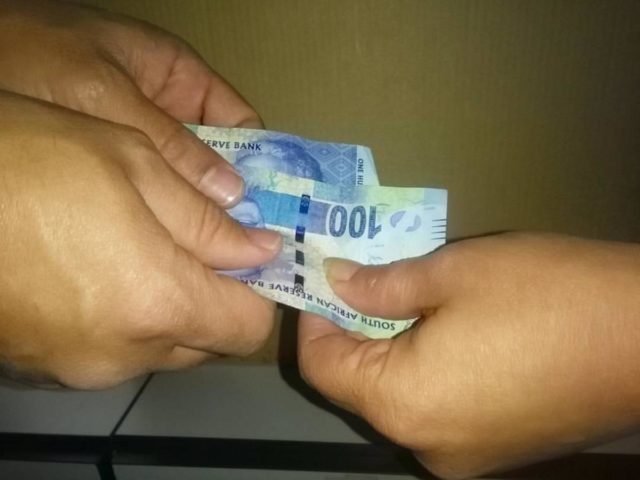Cape Town – On Monday, Social Development Minister Lindiwe Sisulu announced that government is discussing plans to introduce a universal basic income grant for all qualifying South African citizens, but provided no details on when the grant will come into effect.
Zulu made the announcement during a briefing to provide an update on her department’s interventions to assist vulnerable citizens during the national lockdown to curb the spread of the coronavirus.
While the grant would be given to eligible South Africans between the ages of 18 and 59, Zulu cautioned that the rollout may be phased to addressed the needs of those who most urgently need it.
“Currently, the most vulnerable groups of our population are the youth between 18 and 24, and the elderly between 50 and 59. Targeting these groups first and then progressively expanding to other age groups may be warranted,” Zulu said.
Government has just announced 👇that they will introduce a universal #BasicIncomeGrant for all adults from 18-59. This is a huge step forward. We look forward to engaging with the details. @black_sash @SPII1 @VishwasSatgar @AmandlaMobi @IEJ_SA pic.twitter.com/2AFdVJD9d6
— Neil Coleman (@NeilColemanSA) July 13, 2020
The grant, when it does come into effect, will be administered by the South African Social Services Agency (Sassa), she said.
“Sassa has a fairly well developed infrastructure that reaches far more (31.2 percent) than any othe agency therefore the basic income grant will result in most of the poorer individuals continuing to access the Covid-19 SRD (Social Relief of Distress) social benefit,” Zulu said.
“The basic income grant will be unconditional, individually targeted at all the levels to lift individual South Africans out of poverty,” she said.
Zulu said that discussions about the basic income grant had been ongoing for a long time, and that there was still work to be done before the grant could be implemented.
The minister also stressed that her department’s role was to deal with the most vulnerable members of society and as a result they had to be flexible to respond to “the storm of hunger, poverty and unemployment” facing most people who are dependent on social welfare. She emphasised that her department’s work was not only dependent on other government departments, but also on society as a whole.
“When we talk about the storm of hunger, of poverty, we talk about how can we collectively as South Africans work with each other? How can we find the food? The food that we saw from the time that Covid-19 started, the food that we saw distributed by government but also being distributed by NPOs and other organisations,” Zulu said.
We want to thank each and every South African who … when they saw others facing the challenges of hunger they stood up and didn’t say its got nothing to do with me, I don’t know what is happening with my neighbour.They all stood up and said what can we do”
Zulu said that her department was grateful for the assistance of the Solidarity Fund, but that further engagement was needed to address the rising needs of the nation as the lockdown continues.
IOL








